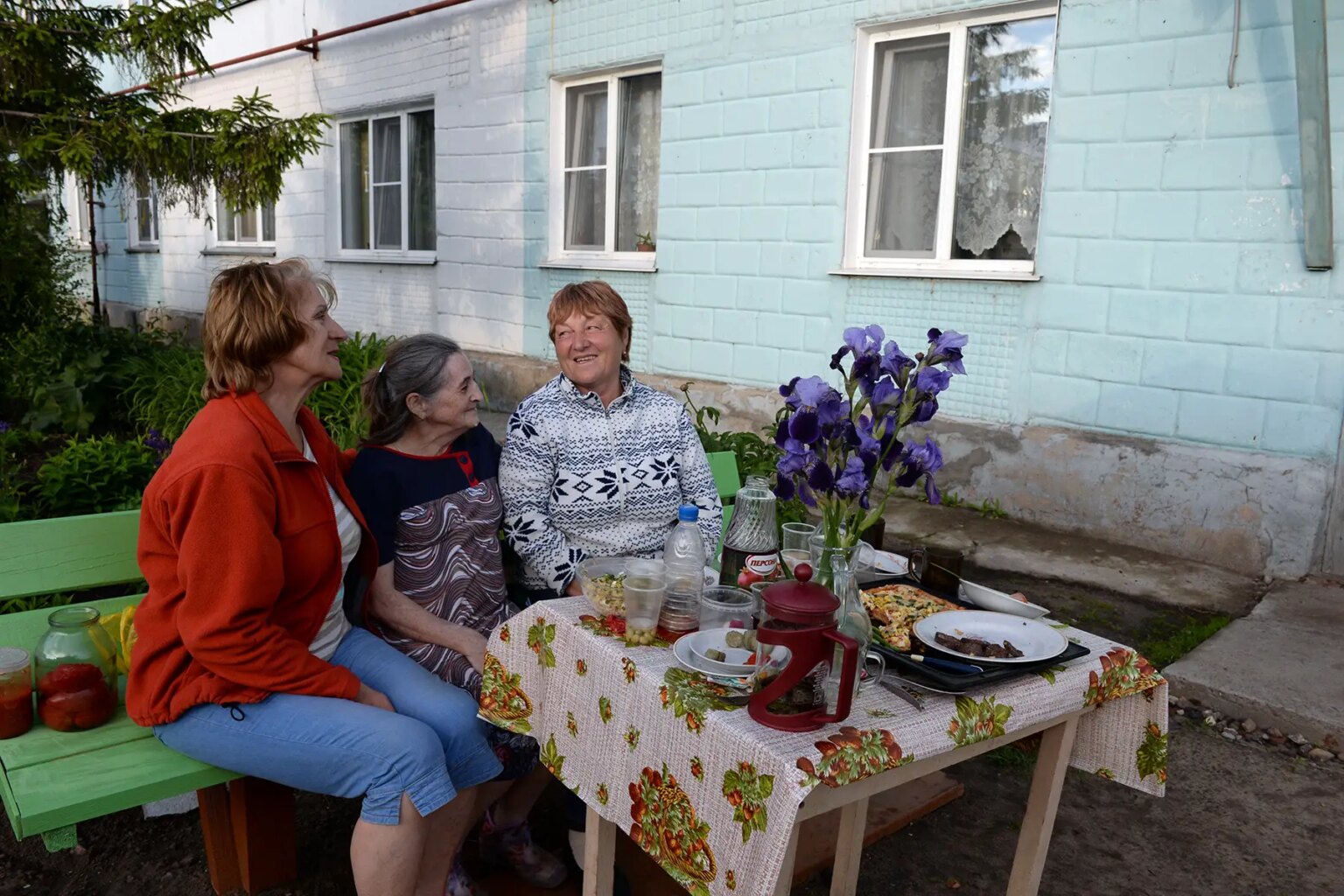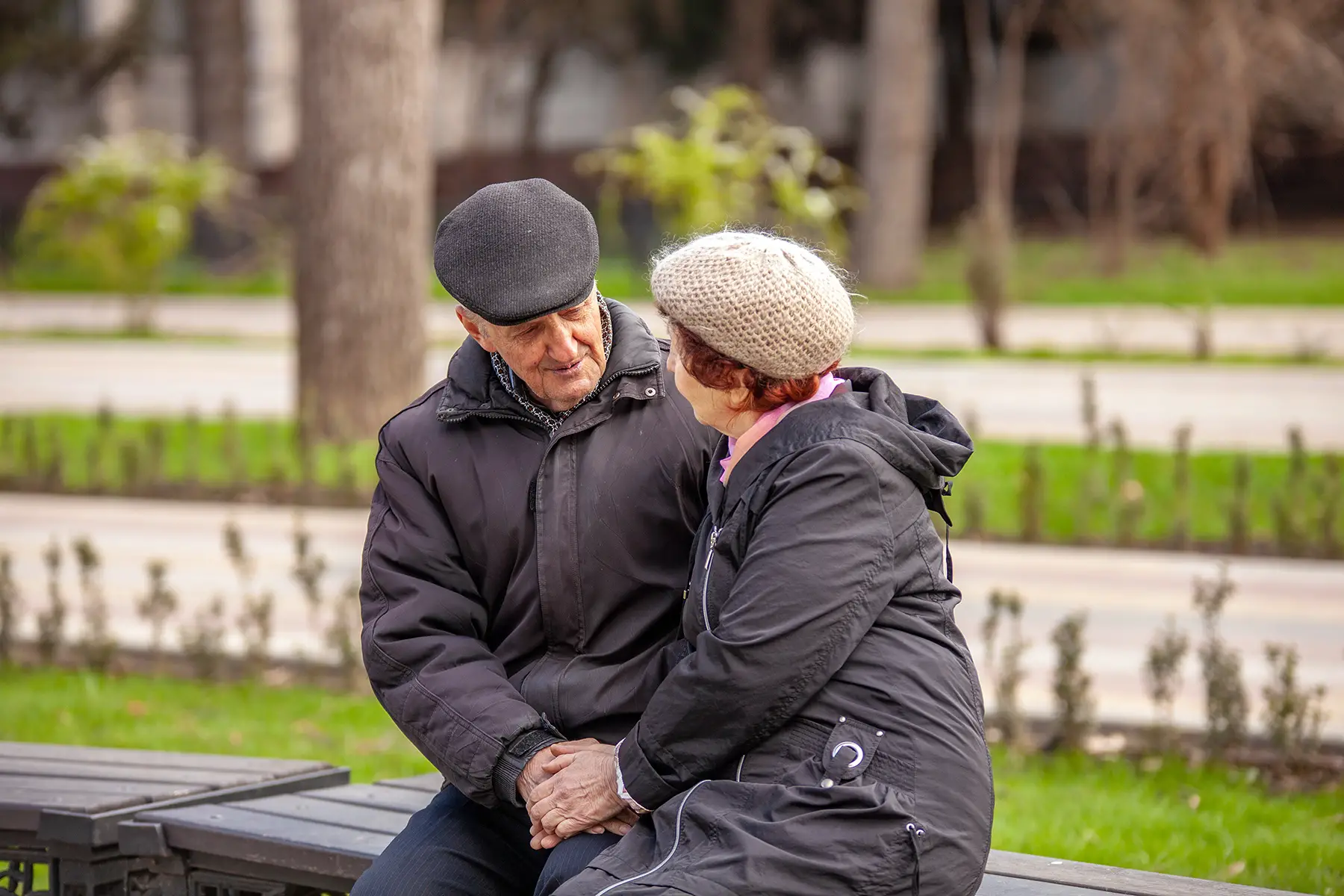Important notice from the Editor in Chief
Maintaining our Russian site is a delicate matter during the war. We have chosen to keep its content online to help our readers, but we cannot ensure that it is accurate and up to date. Our team endeavors to strike the right balance between giving information to those who need it, and respecting the gravity of the situation.
If you’re working in Russia and are approaching retirement, it’s important to get to grips with the quirks of the Russian pension system, as well as understanding how much you’ll need to contribute to get a state pension.
In this guide, we’ll explain everything you need to know about Russian pensions. This includes information on the Russian government’s plans to increase the national retirement age.
This guide to pensions in Russia includes topics such as:
The Russian pension system
As many as 43 million people in Russia receive pensions or social benefits. That number includes a quarter of a million Russian citizens living abroad.
The state pension in Russia is paid and administered by the Social Fund of Russia Federation, which has around 2,500 offices across the country. To be eligible for the old-age pension, workers must pay social security contributions into the fund.
Since 2012, the Russian pension system has operated a three-pillar structure consisting of:
- a mandatory state pension funded by pay-as-you-earn (PAYE) contributions
- company pension funds (funded by mandatory social security contributions paid by employees)
- voluntary private pension funds
Changes to the Russian pension system in 2019
The age at which citizens can claim a state pension in Russia is a hot topic. The Russian government introduc new legislation in 2019 to increase the retirement age.
In fact, the government planned to raise the retirement age by men by five years (from 60 to 65) and for women by eight years (from 55 to 63). After significant public protest, however, it watered down the proposals to cap the women’s retirement age at 60.
These changes will be phased in gradually until 2028. The retirement age is set to increase by six months every year from the start of 2019. Residents planning to retire in the next two years under the old rules can qualify for the state pension six months earlier than their retirement age under the new rules.
Who is eligible for pensions in Russia?
Pension age in Russia
The current Russian retirement age (60 for men, 55 for women) will increase by five years by 2028. Despite this, it’s possible for some citizens to retire earlier with their pension.
First of all, employees in industries with short working lives or in risky industries can retire early. These individuals have their pension calculated based on a bridging pension system.
Despite the recent changes, women who have worked for at least 37 years, and men who have worked for at least 42 years, can retire early. They can then claim the state pension after age 55 and 60 respectively.
While some Russian residents choose to retire early, many work long into old age. It’s thought that there are around 12 million working pensioners in Russia; this is around a quarter of all retirement-aged people.
Pensions in Russia for expats
To claim a state pension, you must make social security contributions from your salary. Exemptions are available for some expats if Russia has a social security agreement with your home country. Before claiming a pension from the Social Fund of Russia, you must have contributed for at least eight years.
Social security contributions are mandatory even if you’re on a temporary visa if your stay exceeds six months. The only exception is for workers on a highly-skilled work visa. You can find out more in Expatica’s guides to Russian visas as well as work permits in Russia.
Russia has social security agreements with Bulgaria, Latvia, Belarus, Lithuania, Georgia, Moldova and Estonia. Criteria may differ if you’re a citizen of one of these countries. Full details are on the International Labour Organization website.
Participation in an occupational pension in Russia is also compulsory, but only for workers born after 1 January 1967.
QROPS: transfer and consolidate your UK pension
Expats moving abroad from the UK may be able to transfer their pensions into a Qualified Recognized Overseas Pension Scheme (QROPS). QROPS allows expats to consolidate their pensions into one plan. This helps them manage their retirement funds more easily as well as avoid currency fluctuations.
There are many advantages to QROPS, however they are not suitable or available to all UK pensioners, so we highly recommend you take advice from an expert financial adviser such as AES.
Russian pension rates and contributions
Since February 2017, the pension in Russia has been indexed at the actual rate of inflation growth (currently around 5.3%). In December 2018, the state-run newspaper Rossiyskaya Gazeta (link in Russian) reported that the average monthly pension in Russia is 14,144 ₽ The highest pensions in Russia were received by residents of Chukota – 22,500 ₽, while the lowest were in Dagestan and Kabardino-Balkaria.
From 2019, a new law brings the average monthly old-age pension for non-working pensioners to 15,000 ₽ This is alongside plans for increasing the pension to 20,000 ₽ by 2024.
Although the Russian state pension is lower than most western countries, many pensioners are eligible for additional benefits, such as free public transport or medicine discounts.
Pension contributions
As mentioned earlier, all employees can claim a state old-age pension after eight years of paying social security. Contributions come from your earnings, as well as other social taxes:
- 22% of earnings under 624,000 p, and 10% of any further amounts
- 5.1% into mandatory federal and territorial medical insurance funds
- 2.9% into the social insurance fund
People born prior to 1 January 1967 contribute 14% of their state - Russian pension into a uniform social security tax and insurance. They do not pay into the accumulative part.
People born on or after 1 January 1967 contribute 7% to social security and 7% to the mandatory second pillar insurance. This is an accumulative part from asset managers that invest the fund. You can also select your own asset management company; otherwise, it goes to a state bank.
Basic retirement pensions include a pay-as-you-go system and consist of an insurance fund and a voluntary cumulative component. The benefit of voluntary contributions is that the Russian pension amounts are lifelong payments. As a result, taxes don’t apply.
You can also find out how much Russian pension you might be able to gain by using the calculator provided by the Social Fund of Russia.
Tax on Russian pensions
The rate of taxation for foreigners depends on the individual’s tax residency status. Official residents in Russia pay tax on their Russian pension at a rate of 13%; however, non-residents pay 30%.
However, some private superannuation schemes are subject to tax-efficient terms and Russia has agreements with some countries to avoid double taxation. To determine your tax status, read Expatica’s guide on taxes in Russia.
If you have a private pension in your home country, check with the policyholder to investigate how tax in Russia impacts on your pensionable income. It is also advisable to seek professional advice.
Supplementary pensions in Russia
Compulsory company pensions in Russia
In addition to the state pension, employees and freelancing professionals must pay into an occupational pension and pay insurance contributions.
Workers have the right to choose whether their contributions are paid into the Social Fund of Russia (PFR) or the non-state pension fund (NPFB). Contributions to the PFR come with a variety of investment options, otherwise payments go to the state’s default asset manager Vnesheconombank.
If you intend to contribute to a private asset management company, you should also ensure they have the appropriate license and comply with legal requirements set by the PFR
Employers must handle the management of insurance contributions and transfer the funds to appropriate accounts. The Russian pension system stipulates that insurance contributions should be transferred no later than the 15th day of the following month, otherwise they are subject to a penalty of 20% of the unpaid contributions.
Voluntary pensions in Russia
Workers in Russia also have the option to pay into voluntary Russian pensions, either via an occupational pension or a private Russian pension fund.
Large corporations or insurance companies control private pensions in Russia. There are no limits as to how much you can pay into private pension funds, nor do companies always provide capital guarantee or ensure a minimum rate of return. Pension benefits are subject to personal income tax.
If you opt to pay into an occupational voluntary pension in Russia, your employer can arrange to make contributions on your behalf directly to the NFR. However, employers are not obligated to contribute to private occupational pensions.
Private pensions in Russia are offered by some of the biggest Russian banks. For example, Russia’s largest bank, Sberbank, offers a series of Individual Pension Plans (IPPs) for high earners, professionals and small business owners.
Other pensions in Russia
Survivor’s pensions in Russia
There are several survivor pensions in the state Russian pension fund, such as:
- survivor labor pension
- state survivor pension
- social survivor
Survivor labor pension
If a spouse was still working at the time of death, the survivor receives a Russian pension if they have a disability, a widow over age 55, or aren’t working while caring for children under 14 years of age, or children with a disability of any age.
If there is no surviving spouse, other benefactors can include people such as:
- Parents older than 60 years
- Children up to 18 (or 23 if in further education)
- Brothers and sisters up to 18 years of age
- Grandfathers over 60 and grandmothers over 55.
Labor pensions are paid in two parts: a flat rate minimum and a Russian pension amount calculated based on capital in a pension fund, stipulated life expectancy after retirement, contribution period of survivor and number of dependants.
State survivor Russian pension
State pensions go to survivors irrespective of the deceased length of insurance cover or military service. Beneficiaries are the same as the above list.
Social survivor Russian pension
The social survivor pension in Russia is only paid when the deceased is not eligible for contributory pension.
For more information on the types of pensions available in Russia, you can also visit the Social Fund of Russia.
Applying for your Russian pension
Pensions in Russia cannot be claimed until you reach the official Russian retirement age, unless you fall in the category of exempted occupations and job industries. To recoup your state Russian pension and company pensions, applications should be sent to the PFR on the address below (unless you opted to pay into a NFP investment).
PFR International Cooperation Department
4 Donskaya Street
Moscow
Telephone: +7 495 986 4167
To receive payments from a private Russian pension fund, contributions should be made to the asset management company you chose.
Pension advice in Russia
If you’re planning for retirement in Russia as an expat, it makes sense to take advice from a professional financial adviser on your pension options, however.



